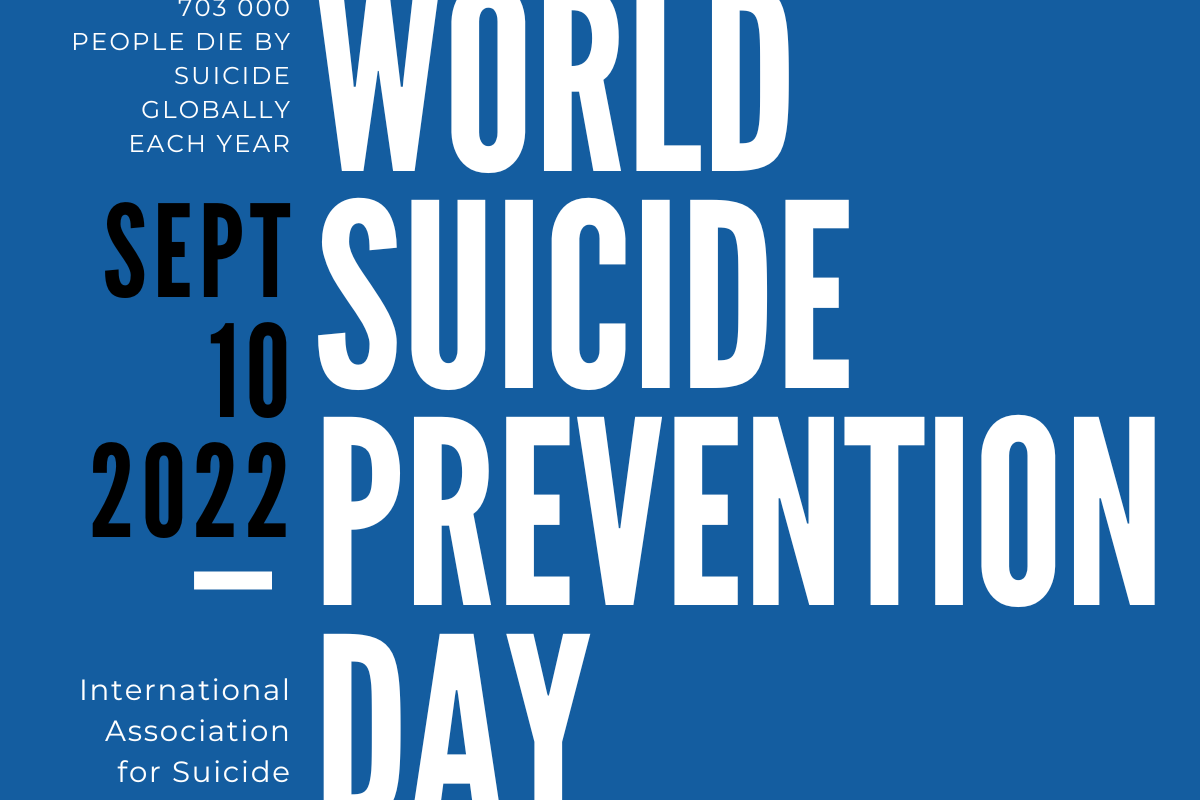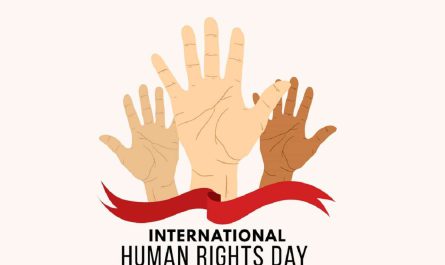Every year on September 10th, the world acknowledges World Suicide Prevention Day, a day dedicated to preventing suicide, improving mental health, and offering assistance to those who are experiencing suicidal thoughts. The day gives people in all communities the chance to unite, break the stigma around suicide, and promote a sense of optimism and camaraderie. By bringing attention to this important topic, we can fight to lower the suicide rate and help those who require assistance.
Suicide is a huge public health risk that necessitates prompt attention and honest discussions. Suicide continues to be a major global public health issue that affects people from all areas of life. The World Health Organisation (WHO) estimates that 800,000 individuals worldwide commit suicide each year, making it one of the major causes of mortality worldwide, especially for young people. Suicide has far-reaching effects that affect families, friends, and entire communities, who are left in a state of loss and despair.
Suicide is a complex problem with many possible causes. Biological, psychological, social, and environmental variables frequently interact to cause it. Suicide risk is significantly increased by mental health issues such as depression, anxiety, bipolar illness, and substance misuse. Other factors that may have contributed to a suicide attempt include prior suicide attempts, trauma exposure, a family history of suicide, availability of fatal methods, and social isolation.
In 2003, the International Association for Suicide Prevention (IASP) and the World Health Organisation (WHO) jointly marked World Suicide Prevention Day for the first time. The purpose of the day is to spread knowledge about suicide prevention and lessen the stigma attached to mental illness and suicide. The date of September 10th was chosen because it comes within the context of the Equinox, a period of time when daylight and darkness are about equal throughout the planet and represent hope and unity.
From 2021 to 2023, “Creating hope through action” will serve as the triennial theme for World Suicide Prevention Day. The phrase “creating hope through action” denotes the idea that optimism is more than just a passive emotion; it can also be actively fostered and bolstered by proactive actions. We may give those who may be experiencing emotional distress hope by doing meaningful activities, such as spreading knowledge about suicide prevention, offering resources for mental health help, developing resilience, and creating a supportive environment.
World Suicide Prevention Day is essential in dispelling the stigma associated with mental illness and suicide. People who are struggling frequently hesitate to ask for assistance out of concern about criticism or misunderstanding. We can develop an environment that supports people in need of assistance by encouraging open dialogue and debunking misconceptions about mental health.
Understanding the warning signals of suicidal ideation is crucial for everyone. Any suggestion of suicide or self-harm must be taken seriously, and assistance must be sought right once. The following are some typical warning indicators of suicidal ideation:
- Suicidal Thoughts: Direct or indirect expression of desires to die, take one’s own life, or flee from suffering.
- Talking About Hopelessness: Speaking of hopelessness means expressing feelings of helplessness, helplessness in one’s situation, or hopelessness in one’s existence.
- Isolation and Withdrawal: Avoiding social interactions and cutting off contact with loved ones.
- Drastic Mood Swings: Extremely quick mood swings, ranging from depression to an abrupt emergence of tranquility following a time of distress.
- Giving Away Items: Giving away cherished items or making preparations as though they won’t be required in the future.
- Self-Destructive Behavior: Engaging in self-destructive behaviors, such as abusing drugs or alcohol, speeding, or taking dangerous risks.
- Saying parting: Making good-bye remarks or showing your loved ones your parting gestures.
- Changes in Sleep and hunger: Notable variations in sleep patterns, such as sleeping excessively or insufficiently, as well as perceptible variations in hunger and weight.
- Loss of Interest: A major drop in motivation or a loss of interest in once-enjoyed activities.
- Agitation and Irritability: Experiencing strong sensations of agitation, irritation, or rage without a discernible cause.
- Recklessness: Taking risks without thinking about the repercussions.
- Unresolved Emotional Pain: Constant depressive, helpless, or guilty sentiments, together with a burdensome sensation of being a burden to others.
Suicide prevention necessitates a thorough and multifaceted strategy. It starts with raising people’s awareness of mental health issues and educating them so they can spot the warning signals of distress in both themselves and others. In order to lower suicide rates, it is essential to promote open dialogue about mental health and to provide access to mental health resources and support services.
Creating a solid support system is one of the best methods to stop suicide. On World Suicide Prevention Day, groups and communities all over the world organise activities and campaigns to raise awareness of mental illness, inform people about suicide prevention, and offer assistance to those in need. We can develop a safety net for people experiencing emotional distress by working with mental health specialists, local authorities, and support groups.
Education is an effective suicide prevention technique. Communities, companies, and schools can all be important venues for advancing mental health awareness and wellbeing. We can give people the knowledge and resources they need to recognise indications of distress, get treatment, and successfully support others by integrating mental health awareness into the curriculum, workplaces, and public programmes.
Suicide is a deeply concerning issue that requires collective efforts to address and prevent. We can end the stigma around suicide and provide people in need hope and assistance by developing a culture of compassion, understanding, and open conversation about mental health. Keep in mind that every life is precious, and that by working together, we can help those who may be struggling and prevent suicide. Let’s work together to create a culture where mental health is prioritized, no one feels alone in their darkest hours, and we raise awareness, provide support, and advance that culture.



